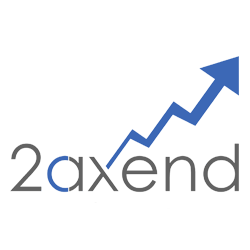Improving Patient Experiences, One Training at a Time
With a combination of in-person workshops, webinars and e-learning modules, we can prepare your students to deliver consistent patient-centric experiences to Deaf and hard of hearing individuals throughout the entire care continuum.
Our most popular training topics include:This interactive session will detail systemic barriers and their impact on accessibility, especially during a time where COVID-19 has exacerbated communication barriers Deaf and hard of hearing individual face in healthcare systems. As a Deaf father of twins born during the midst of the COVID-19 pandemic, Corey Axelrod will explore key stakeholder perspectives that impact the delivery of services to Deaf and hard of hearing individuals.
After this session, participants will:
- Recognize how existing systemic barriers may affect clinical decision-making, patient-provide interactions and Deaf and hard of hearing patients’ outcomes; and
- Identify opportunities to navigate and dismantle these systemic barriers in order to deliver patient-centric care to Deaf and hard of hearing individuals.
During this session, we will discuss how healthcare professionals working with Deaf and hard of hearing patients and companions can ensure interactions are culturally sensitive and appropriate. We will take a deep dive into Deaf culture and combine this with practical, real-life stories and situations to help healthcare professionals appropriately respond to the varying needs of Deaf and hard of hearing individuals while maintaining a professional level of respect, objectivity and identity.
After this interactive session, participants will:
- Understand Deaf and hard of hearing individuals’ sociocultural experiences and their relevance in healthcare settings;
- Recognize language differences, body language and expressions of emotions;
- Apply techniques and strategies to effectively identify possible challenges Deaf and hard of hearing patients and companions may encounter due to cultural and communication differences; and
- Implement strategies to bridge communication and cultural gaps between Deaf/hard of hearing individuals and hearing healthcare providers.
As unconscious biases are created and often reinforced by our environments and experiences, this workshop will explore how individual and systematic biases impact service delivery, clinical decision making, patient-provider interactions and, essentially, Deaf and hard of hearing patients and companions. Through Deaf lens, the presenter will discuss best practices for healthcare professionals to use to identify unconscious biases and provide proactive and strategic support that will make a concrete difference in improving healthcare outcomes for Deaf and hard of hearing patients.
After this interactive seminar, participants will:
- Recognize what power and privilege looks and feels like from the perspective of Deaf and hard of hearing individuals;
- Understand and apply best practices to determine which privileges to leverage, minimize or divest;
- Apply tips and strategies discussed to hold other healthcare professionals accountable for their actions; and
- Utilize promising approaches for more open and authentic dialogue with Deaf and hard of hearing individuals.
While healthcare organizations have proactively provided patients with a wide range of accommodations, these efforts may not entirely address the needs of individuals with disabilities, let alone those who are Deaf and hard of hearing. Consequently, these organizations fail to create wholly diverse, equitable, inclusive and accessible environments. With an emphasis on creating patient-centered environments, we will discuss the fundamental differences between simply providing accommodations and cultivating equitable, inclusive and accessible environments that benefit not only your Deaf and hard of hearing patients, but all patients who utilize your organization’s services.
Participants will leave this session with:
- An understanding of potential communication and cultural gaps between Deaf/hard of hearing individuals and providers;
- An appreciation of how potential communication and cultural gaps may impact inclusion, equity and accessibility initiatives; and
- Evidence-based practices and strategies designed to improve the overall experience for Deaf and hard of hearing patients and companions.
2axend can also provide customized trainings designed to help improve the delivery of services provided to Deaf and hard of hearing individuals. For more information, contact us today.
